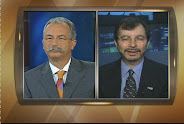Let me start by saying that on many levels, I agree with Paul Krugman. I read his blog regularly and find his work to be of significant value. I also share many of his political views and leanings. But when he makes the market efficiency argument, he has entered a space where he is wholly unqualified to roam. For in several of his recent postings that is, in effect, what he has done. Like other economists that I know, he is attempting to apply his social science skills in economics to the social science skills in investing. In this regard, Krugman is wrong on three levels.
First, to argue against the Geithner plan (accurately portrayed as seeing the problem as one of liquidity and not solvency) is to argue that the markets AT ALL TIMES, IN ALL CONDITIONS know what the fair value of any asset is at any and all times. Yet, everyone acknowledges that the market for the so-called “toxic assets” is dysfunctional. And central to its dysfunctionality is their illiquidity. So, if certain markets for certain instruments are dysfunctional (which includes valuation) due in large part to illiquidity then why isn’t the conclusion that liquidity and not solvency the core of the problem?*
Second, if making the dogmatic argument for market efficiency weren’t enough, Krugman then moves into the math space and applies bizarro logic to the actions professional investors will likely take as they participate in the Geithner PPIP plan: “Let me offer a numerical example. Suppose that there’s an asset with an uncertain value: there’s an equal chance that it will be worth either 150 or 50. So the expected value is 100. But suppose that I can buy this asset with a nonrecourse loan equal to 85 percent of the purchase price. How much would I be willing to pay for the asset? The answer is, slightly over 130. Why? All I have to put up is 15 percent of the price — 19.5, if the asset costs 130. That’s the most I can lose. On the other hand, if the asset turns out to be worth 150, I gain 20. So it’s a good deal for me.”
The logic of this example falls on its face on three levels. First, no professional investor is going to invest in a 50/50 bet (20 points I win, 19.5 points I lose). That ½ point return advantage is all of 38 basis points of upside potential! Does anyone reading this believe that PIMCO, for example, will make such a bet? I don’t. Moreover, since the US government is involved in the process, it is equally hard to imagine that Geithner and Bernanke would allow the US equity stake to engage in boneheaded bid up purchases. Lastly, and most importantly, just what valuation methodology will the PPIP parties engage in? How about one that is rooted in sound economic principles, say, the discounted cash flow method. In the Krugman math example, no such sane and prudent approach will occur.
The third part of Krugman’s argument that is problematic goes right to the heart of his economic skills and the illogic of his thinking when it comes to asset values. Specifically, how will the economic stimuli (monetary and fiscal) that he so strongly advocates in favor of have a positive effect on the economy yet somehow have little to no effect on asset values? Specifically, how do trillions of dollars move the US economy yet asset values for the length of the “toxic assets” remain depressed, if not plunge further? Why wouldn't such assets at least maintain their discounted cash flow values?
You Know You’re In Trouble When Gingrich Agrees With You
Advocate views like Krugman’s make strange bedfellows. So, it is no surprise to see none other than Newt Gingrich sing the praises of Paul’s folly. At least, however, Gingrich’s argument is rooted in the political sphere as he tries to attribute motive to the Obama administration with statements such as “We are currently being run by a left wing machine that want the United States as we have known it to cease to exist”.** Whereas Krugman’s argument is rooted in the dogma of market efficiency.
Liquidity Not Solvency
The central part of the so-called “toxic assets” argument has been liquidity versus solvency. Those with an understanding of how markets work (like Geithner and his predecessor, Hank Paulson) see it principally as a liquidity problem. Those with Nobel prizes living in ivory towers see it otherwise.
I love you, Paul. But on this one, you win the booby prize.
*Of course, other factors such as the economic outlook play a key role in the depressed pricing. However, just as the case with the price of oil last summer, non economic factors play an exacerbating role.
**Setting aside the standard Republican fear mongering playbook, Gingrich’s arguments do offer an alternative methodology, which interestingly contain several very workable elements such as creating an online auction, let the participants decide the value, and cover the losses.































